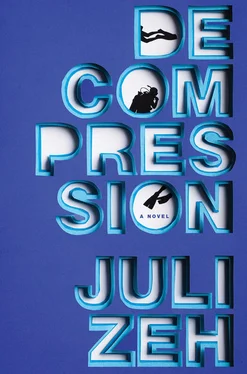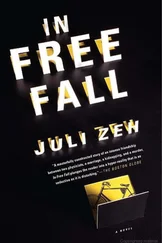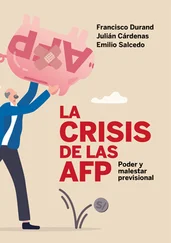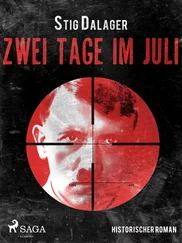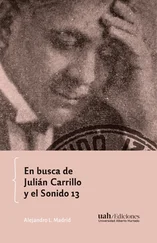Theo moved his fingers in the air as if he were playing piano. “In the meantime,” he said, “I write short stories. Finger exercises.” He looked at me sideways. “Would you like to read something?”
I cleared my throat. “Unfortunately, where literature is concerned, I don’t get it,” I said.
“So much the better. The enemies of literature are the best readers. Remind me to give you something of mine when we get back.”
He stood up and slapped his pants as though we’d been sitting in the worst kind of filth.
“This is what I really wanted to say: If you’re hot for Jola, I have no problem with that. I would just advise you to be careful. At the moment I don’t know what she’s planning to do. But she’s surely planning something. Shows like the one she put on when we were diving are typical of her.”
I hid my smile behind a yawn. What was really typical was the logic of the war zone: some dark plan lay behind every sort of behavior. You asked a lot of questions, and as a punishment you got the answers. Theo sneezed three times on the way to the car and then lit another cigarette. “Shit,” he said. “I probably caught something on that cliff last night.”

Light shone through the Casa Raya’s closed shutters. Apparently Jola was still awake, studying her nitrox materials. Theo and I bade each other good night with great warmth. I liked him. He was suspicious, but he couldn’t help it. All the inhabitants of the war zone were like that. Suspicion was a natural result of their lifestyle. I felt satisfied. In the course of our conversation, it had become clear to me that the three of us were going to get along just fine for the remainder of their stay. I’d earn a pile of money, they’d learn how to dive and maybe along the way even how to have a normal relationship. They wouldn’t be the first to figure out what really mattered while underwater.
Antje was standing in the hall. She looked as though she’d been waiting for me for hours. When I kissed her forehead, I held her by the shoulders so she couldn’t cling to me.
“How was it?” she asked.
“Nice,” I said. “Really very nice.”
“How about a nightcap?”
“I’d rather not.”
“Come on, stay up another thirty minutes. We’ve got something to talk about.”
“I’ve had a hard day.”
“It’s only ten o’clock!”
She knew I hated to go to bed after ten o’clock. I needed to feel I could lie awake for two hours and still get six hours’ sleep. And if I stayed up past midnight, the fear of not being able to fall asleep would keep me awake all night long.
“Please,” Antje said. “Fifteen minutes, no more. Please!”

I’d known Antje since before she was even born. The Berger family lived two streets away from mine. Antje’s future father came on the weekends to mow the lawn; her mother cleaned our bathroom on Thursdays. I was almost ten when Frau Berger’s belly began to swell. From then on I used to watch her through the keyhole every Thursday while she was at work in the bathroom. Until one day she stopped coming. A few weeks later a baby carriage was standing in the shade of the linden tree while Antje’s father mowed the lawn. My interest in the former contents of Frau Berger’s belly died.
At thirteen I started asking my parents for a dog. Asking turned into begging. I was unlucky in love, not particularly athletic, and much in need of a friend. My parents were strenuously opposed to the idea. They claimed I’d lose interest in the dog before very long and then saddle them with the work. I swore they were being unjust to me.
For my fourteenth birthday I got Todd, a brown cocker spaniel with soft eyes and long ears. We were inseparable. I took him on walks three times a day. No one but me was allowed to feed him. Once I brought him to school, where all the girls swooned over him and I became — for a day — the most popular boy in the class.
Two years later, I was going out with Mareike, and I’d forgotten why I’d needed a dog. Todd was sweet, loyal, devoted, and tiresome. Because I begrudged my parents the triumph of having been right, I clenched my teeth, did my duty, and kept on walking him. Every day our walks got shorter. I’d haul Todd like an object once around the block, and in the end I threw him out of my room, where he’d slept happily at my feet for the first two years of his life. He’d look at me sadly, but without reproach. My bad conscience made me hate him.
His salvation arrived in the shape of little Antje, who came to our door one day and asked if she could take Todd for a walk. From that moment on, Todd was the happiest dog in the world. He loved Antje, and Antje loved him. They’d spend whole afternoons in the town woods. When Antje got a little older, they’d take a bus together and go hiking in the forests of the Neandertal. My mother would give her some pocket money, but the tip had less to do with Antje’s expectations than with my family’s habit of paying members of the Berger family for their services.
After I moved to Cologne to attend the university, on rainy days Antje would lie with Todd on the floor of my room, listen to my music, read my books, and wait to get older. When I came home for semester break, I’d sit at my desk and try to solve the riddles of some legal homework while Todd and Antje shared a bag of jelly babies on the Flokati rug. If I wanted to go to the bathroom, I’d climb over the two of them. Antje didn’t bother me. Her presence had a tranquilizing effect. She was almost sixteen when I inadvertently slept with her one wet afternoon. Since this one-on-one leisure-time activity harmed neither of us, we occasionally repeated it.
Later Antje would say it was me and not Todd she’d been in love with as a child. But a seven-year-old can’t approach a seventeen-year-old. Likewise, a twelve-year-old girl has no chance with a twenty-two-year-old student. A girl has to be sixteen before she’s capable of making an impression on a man of twenty-six. And so her plan had basically been to wait. During the long hikes in the Neandertal, she said, she had imaginary conversations with me. Even the books in my room smelled like me. She’d crept into my clothes closet for her first exercises in masturbation, she said. I would have thought it impolite not to believe her. I’d learned at court how people shaped the past according to self-created patterns. They’d talk the crudest nonsense with sacred conviction. That was maybe the most important insight I gained from my legal education: he who doesn’t tell the truth is still a long way from lying. In my eyes, Antje was such a case.
On the day when I stopped by my parents’ house to pick up a few things I’d need on the island, Antje was lying on my bed, doing a crossword puzzle. My mother stood in the doorway and screamed at me. My father backed her up, having left work at the clinic where he was the chief physician for just this purpose. Since he’d paid for my university studies, I owed him my life. That was his position. We agreed that I couldn’t expect the smallest financial support when I came back from my reckless adventure, a failure and a disgrace, in a few weeks. I slung my army duffel bag over my shoulder and fled the house.
Antje followed me to the train station, to the train itself, and into my Cologne apartment. She simply refused to leave my side. I was exhausted, and I decided I couldn’t forbid her to turn up at the airport at the same time as me on December 31, 1997. It so happened that the pocket money she’d received for taking care of Todd, year in year out, nicely covered the price of a plane ticket.
Читать дальше
